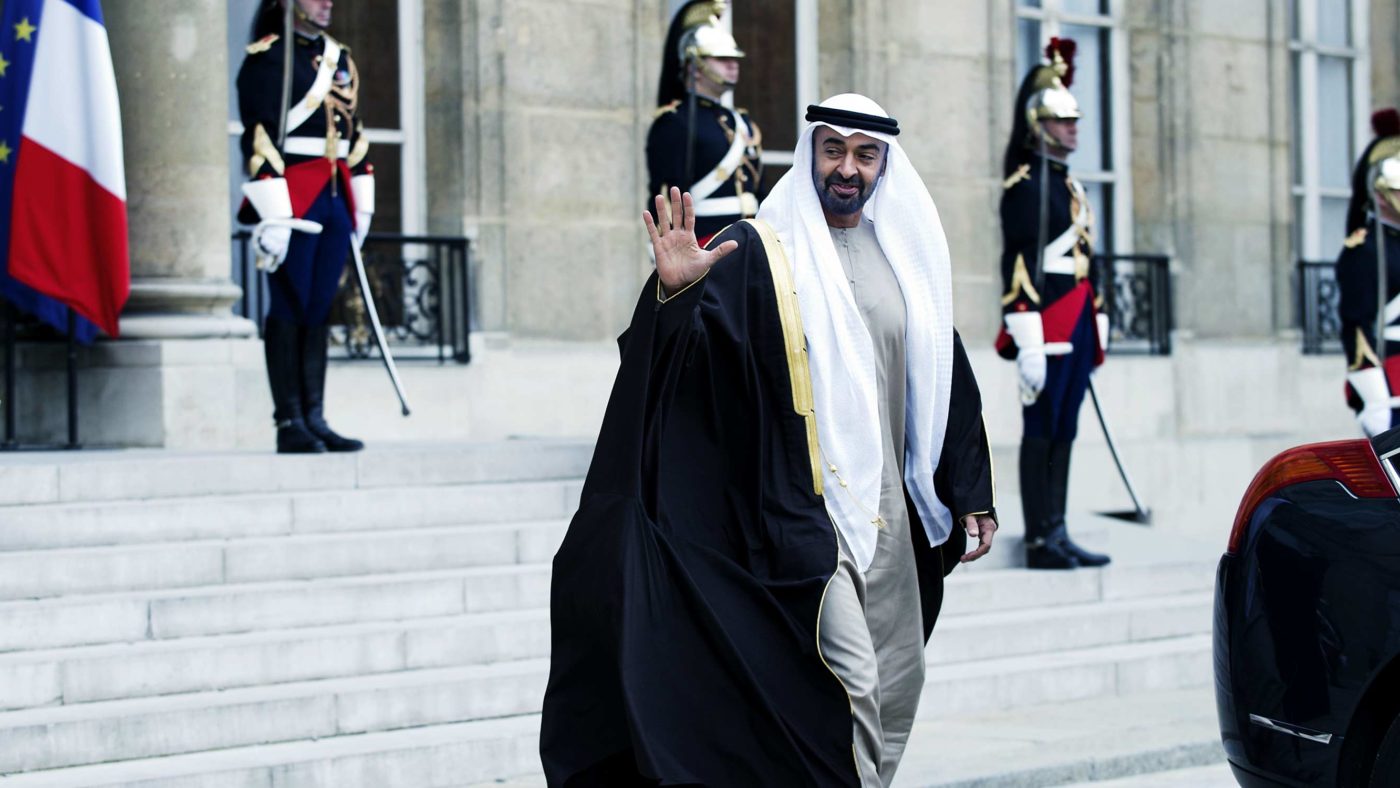Among the first to draw the lessons of the Kabul debacle is Mohamed Bin Zayed, the lean, soft-spoken crown prince of Abu Dhabi, de facto ruler of the UAE — the only Arab country that had a military contingent in Afghanistan for 20 years. MBZ, as he is known, is in London today for quiet talks with Boris Johnson, offering what some in the Emirates like to call ‘a new special relationship’.
Across the world from Japan to the EU, America’s allies are dismayed by what they see as a lack of concern from Joe Biden’s United States for most of its oldest relationships. Nowhere is this feeling of abandonment, and perception of the concomitant threat from emboldened extremists smelling weakness, more acute than in the Gulf states, who in recent years have engaged in a major reshaping of their policies and long-term plans. And the prime artisan of this quiet revolution, embodied by last year’s Abraham Accords, the peace treaty signed exactly a year ago between Israel, the UAE and Bahrain, soon followed by Sudan and Morocco, is Mohamed Bin Zayed.
Abu Dhabi is by far the richest of the seven Emirates created by the departure of the British in 1971. Its ruler has been prince Mohammed for the past seven years, after his brother Khalifa Bin Zayed, still the UAE president, suffered a stroke in 2014. MBZ controls some £1 trillion of sovereign wealth funds, the highest of any nation in the world. His military is the most efficient of any Arab state: when he took over, the prince immediately established one-year conscription for all young Abu Dhabi citizens, for one year. ‘I’m starting a draft,’ MBZ was quoted in the New York Times as telling the former White House counter-terrorism czar, Richard Clarke, who had been advising him. ‘I want everyone in the country to feel like they’re responsible. A lot of them are fat and lazy.’
To properly launch his surprise reform, the prince started with ‘all the young people in his own family’ — including his daughters and nieces. James Mattis, the Marine general who served as Donald Trump’s Secretary of Defense, calls the UAE the ‘little Sparta’ of the region.
The UAE military have a long tradition of cooperation with Britain that even predates their 1971 foundation, back when they were known as the Trucial States, a British protectorate. There were UAE troops fighting in the first Gulf war in 1990, a UAE contingent under NATO command in Kosovo. UAE soldiers and the UAE air force stayed until the end in Afghanistan, helping evacuate hundreds of Britons and their Afghan associates. Now, the worry is that the collapse in Afghanistan, and the risk that it will turn again into a training ground for radicalised terrorists, means danger from the Taliban’s sponsors, from Iran to Pakistan, for the modernisers in the Gulf.
A Sandhurst graduate who spent a term at Gordonstoun (he liked it a lot better than Prince Charles), a military helicopter pilot by training, MBZ is the quiet brains behind the evolution of the Gulf States. He has for years acted as a kind of mentor to Saudi Arabia’s powerful crown prince, Mohammed Bin Sultan, known to friends and enemies as MBS, who himself has engaged in some modernisation in Saudi. It is unlikely that either the Saudi social evolution, or a tacit acceptance of the Abraham Accords by its large neighbour would have happened without Mohammed Bin Zayed’s influence.
Yesterday, MBZ met with Emmanuel Macron, another leader constitutionally in direct charge of his diplomacy and military. Abu Dhabi has bought a lot of French hardware, especially Mirage and Rafale fighters; and has also sent students to the renowned École Militaire, where they have an excellent reputation among the foreign officers invited to spend a year and a half in this elite institution.
The French president, whose new law against Islamist ‘separatism’, reinforcing his country’s foundational secularism, has been criticised among Western liberals, has found a kindred spirit in the Abu Dhabi ruler, the most determined foe of the Muslim Brotherhood in the Arab world. (Abu Dhabi supported Tamarod, the popular movement whose large street demonstrations against Egypt’s Islamist President Mohamed Morsi, elected after the 2011 Arab Spring, led to his ouster by the Army in 2013. Since then, the Emirates have poured billions into supporting Abdel Fattah El-Sisi, the officer who replaced him.)
MBZ likes to tell of the Muslim Brotherhood tutor his father found for him in the 1980s, a prominent scholar called Ezzedine Ibrahim. Born in a fairly liberal family (his father Sheikh Zayed encouraged the presence of different religions in Abu Dhabi, and his mother Fatima bint Mubarak, now in her 80s, always supported full education for girls), the young man responded eagerly to Ibrahim’s doctrinaire teachings. That did not last. Wikileaks revealed a 2007 cable from American diplomats, to whom MBZ recounted the moment when rejection set it. ‘I am an Arab, I am a Muslim and I pray. And in the 1970s and early 1980s I was one of them. This is how I know what they are.’
Since then, UAE forces have fought against Al-Shabab in Somalia, supported the Libyan National Army against Islamists and led actions against Islamic State in Syria and Iran-sponsored Houthi insurgents, Al-Qaeda and the Islamic State in Yemen. Not all those initiatives had the hoped for results; but they are consistent.
British and French intelligence services have cooperated closely with the UAE, from information on networks to expert de-radicalisation programmes. Like Macron, Boris Johnson – fresh from reshuffling his top team – is in need of new allies to deal with a more dangerous world. There’s a reason why both men have made time to meet with Mohamed Bin Zayed.
Click here to subscribe to our daily briefing – the best pieces from CapX and across the web.
CapX depends on the generosity of its readers. If you value what we do, please consider making a donation.


